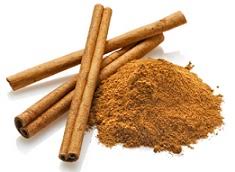 According to the most recent statistics, about one-third of the entire U.S. population, or more than 100 million Americans, suffers from either diabetes or pre-diabetes, a blood sugar condition that can eventually lead to more serious health conditions and even death. And based on U.S. Centers for Disease Control and Prevention (CDC) projections, this number is expected to double by 2050 if trends continue at current rates. But you and your family do not have to fall victim to this sweeping diabetes epidemic — here are some tips on how to alter your diet and lifestyle to avoid developing diabetes and potentially succumbing to premature death:
According to the most recent statistics, about one-third of the entire U.S. population, or more than 100 million Americans, suffers from either diabetes or pre-diabetes, a blood sugar condition that can eventually lead to more serious health conditions and even death. And based on U.S. Centers for Disease Control and Prevention (CDC) projections, this number is expected to double by 2050 if trends continue at current rates. But you and your family do not have to fall victim to this sweeping diabetes epidemic — here are some tips on how to alter your diet and lifestyle to avoid developing diabetes and potentially succumbing to premature death:
1) Eat more foods rich in quercetin. A member of the flavonoid family of antioxidants, quercetin has been shown to help lower blood glucose levels and improve plasma insulin levels, two factors commonly associated with diabetes (http://www.ncbi.nlm.nih.gov/pubmed/19496084). Quercetin also helps neutralize damaging free radicals and inhibit inflammation, not to mention lower blood pressure in people with inflammation (http://www.umm.edu/altmed/articles/quercetin-000322.htm).
Foods that are high in quercetin include apples, citrus fruits, onions, parsley, sage, green tea, and red wine. Olive oil, grapes, dark cherries, and dark berries are also rick in quercetin and other flavonoids, according to the University of Maryland Medical Center (UMMC). And if dietary sources are not enough, quercetin is also available in supplement form, including in the Rejuvenate! Plus green superfood formula available at the NaturalNews store (http://store.naturalnews.com/Rejuvenate-Plus-500-g_p_95.html).
2) A teaspoon of cinnamon a day to keep the diabetes away. Cinnamon contains powerful blood sugar-stabilizing compounds that not only increase glucose metabolism by a significant amount, but also mimic the activity of insulin inside the body. Supplementing with cinnamon can also help slow the speed at which food empties from your stomach, inhibiting the blood sugar rush that often comes following a meal high in refined sugar and simple carbohydrates (http://www.huffingtonpost.com).
Continue reading →
 Dr. Adria Schmedthorst – If you suffer from diabetes, you know the daily struggle of balancing the foods you want to eat with the effect they will have on your blood sugar.
Dr. Adria Schmedthorst – If you suffer from diabetes, you know the daily struggle of balancing the foods you want to eat with the effect they will have on your blood sugar.
 Widely available, cheap, and in some form usually eaten by even the most picky eaters, potatoes are a staple in most households. As well as coming in many varieties, with subtle colour and flavour differences, they have the added benefit of being very filling, something that will be very useful if/when food supplies are restricted. Potatoes are easy to grow, even a large tub on a patio will produce a useful crop.
Widely available, cheap, and in some form usually eaten by even the most picky eaters, potatoes are a staple in most households. As well as coming in many varieties, with subtle colour and flavour differences, they have the added benefit of being very filling, something that will be very useful if/when food supplies are restricted. Potatoes are easy to grow, even a large tub on a patio will produce a useful crop.